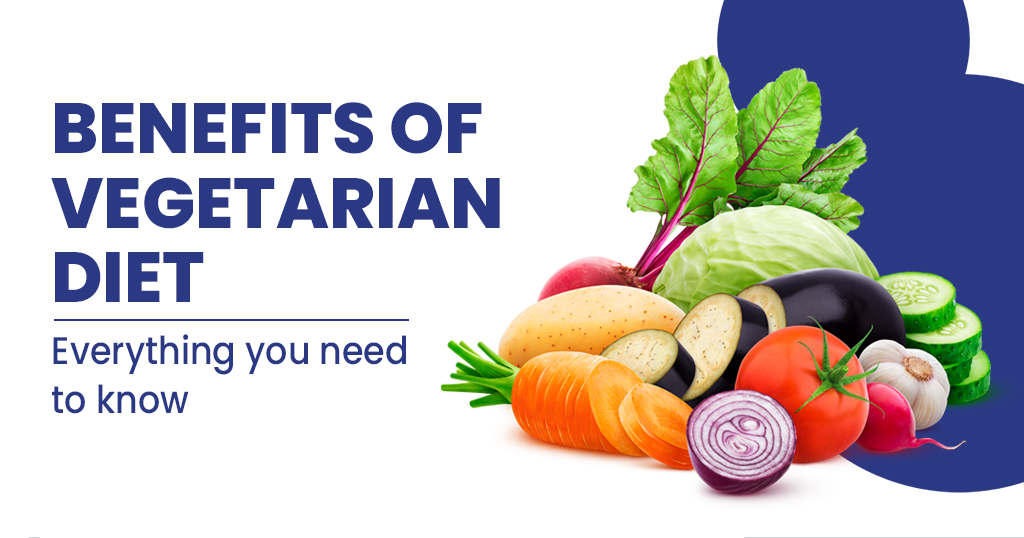The Benefits of Vegetarianism: A Comprehensive Guide
Welcome to our comprehensive guide on the benefits of vegetarianism. In this article, we will explore the numerous advantages of adopting a vegetarian lifestyle. By understanding the positive impact it can have on our health, the environment, and animal welfare, you can make an informed decision about embracing vegetarianism.
Improved Health
One of the key benefits of vegetarianism is its positive impact on our health. By following a well-balanced vegetarian diet, individuals can reduce the risk of various chronic diseases, including heart disease, high blood pressure, and certain types of cancer. Vegetarian diets are typically rich in fiber, vitamins, and minerals while being low in saturated fats and cholesterol.
Research has shown that vegetarians tend to have lower body mass indexes (BMIs) and are less likely to be overweight or obese compared to non-vegetarians. Additionally, vegetarianism can help improve blood sugar control, reduce the risk of developing type 2 diabetes, and promote overall longevity.
Environmental Sustainability
Another significant benefit of vegetarianism is its positive impact on the environment. Livestock production is a major contributor to greenhouse gas emissions, deforestation, and water pollution. By choosing a vegetarian diet, you can significantly reduce your carbon footprint and contribute to the preservation of natural resources.
The production of plant-based foods requires less land, water, and energy compared to animal-based food production. By opting for vegetarian alternatives, such as legumes, grains, fruits, and vegetables, we can help mitigate the negative environmental consequences associated with meat production.
Animal Welfare
Adopting a vegetarian lifestyle also aligns with ethical considerations regarding animal welfare. Many individuals choose vegetarianism to avoid supporting the mistreatment and exploitation of animals in the food industry. By eliminating meat from our diets, we can contribute to the reduction of animal suffering and promote a more compassionate society.
Factory farming practices often involve cramped and unsanitary conditions for animals, leading to physical and psychological distress. By choosing vegetarian options, we can encourage a shift towards more humane and sustainable farming practices.

In conclusion, the benefits of vegetarianism are vast and encompass improved health, environmental sustainability, and animal welfare. By adopting a vegetarian lifestyle, individuals can reduce the risk of chronic diseases, minimize their carbon footprint, and contribute to a more compassionate world.
Consider making the switch to vegetarianism and experience the positive impact it can have on your life and the world around you. Remember, every small step towards vegetarianism counts!
Frequently Asked Questions
1. What are the main benefits of vegetarianism?
Vegetarianism offers numerous benefits, including improved heart health, reduced risk of chronic diseases, weight management, and a more sustainable lifestyle.
2. Can a vegetarian diet provide all the necessary nutrients?
A well-planned vegetarian diet can provide all the essential nutrients, such as proteins, vitamins, minerals, and omega-3 fatty acids, by incorporating a variety of plant-based foods.
3. Does vegetarianism help in weight loss?
Yes, vegetarian diets are often associated with weight loss due to their high fiber content, lower calorie density, and reduced consumption of processed foods.
4. How does vegetarianism contribute to better heart health?
Vegetarian diets are typically low in saturated fats and cholesterol, which are known to increase the risk of heart diseases. Bydiseaseg on plant-based foods, vegetarians can improve their heart health.
5. Can vegetarianism reduce the risk of certain cancers?
Research suggests that a vegetarian diet, particularly one rich in fruits, vegetables, and whole grains, may help reduce the risk of certain types of cancers, such as colorectal cancer.
6. Is vegetarianism suitable for athletes or individuals with high energy needs?
A well-planned vegetarian diet can adequately meet the energy needs of athletes and individuals with high physical activity levels. Proper meal planning and nutrient-rich food choices are crucial in such cases.
7. Does vegetarianism have any environmental benefits?
Yes, vegetarianism has environmental benefits as it requires fewer natural resources, reduces greenhouse gas emissions, and helps conserve water, making it a more sustainable choice for the planet.
8. Can a vegetarian diet help lower blood pressure?
Studies have shown that vegetarian diets, especially those rich in whole grains, fruits, vegetables, and legumes, can help lower blood pressure levels and reduce the risk of hypertension.
9. Are there any potential challenges or risks associated with vegetarianism?
While vegetarianism can offer numerous benefits, it’s important to ensure a balanced diet to avoid nutrient deficiencies, particularly in vitamin B12, iron, calcium, and omega-3 fatty acids. Consulting a healthcare professional or registered dietitian can help overcome these challenges.
10. Can vegetarianism be suitable for children and pregnant women?
Yes, vegetarian diets can be suitable for children and pregnant women. However, extra attention should be given to meeting their nutritional needs, including sufficient protein, iron, calcium, and vitamin B12, through appropriate food choices and possibly dietary supplements.




